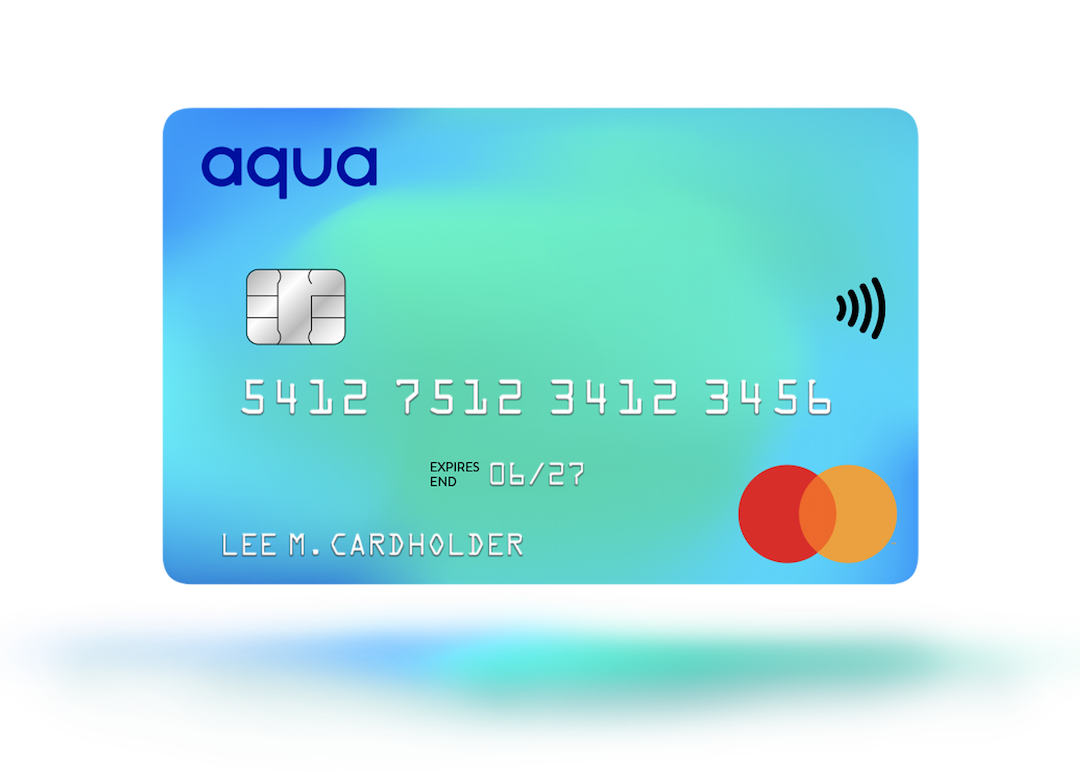Budgeting for a baby
Discover some top tips for saving for a baby and for your children's future.

Starting a family can be expensive, but it doesn't have to break the bank. With some product research, future planning and some clever budgeting tips, you can make the most of your money and focus on what's truly important. Whatever stage you're at in creating your dream family, it's never too late to discover how to save for the future of your children.
Creating a budget
When planning for the future, it's always best to go back to basics and start a budget. If you've not already got a monthly spending budget in place, we've got an easy to follow guide to budgeting to get you started. As well as some tips and tricks to make the most of your money with everyday saving tips.
Once you've put together a budget and can see how much money you can save each month, it's time to make a list of costs for everything you'll need for your little one's arrival. This will help to make saving for the future stress free.
Working out what you need in the first year
Working out what you need for a baby's first year is an essential part of the planning process. There are plenty of ways to reduce the cost of buying some of these items, like buying second hand on selling sites or where more eco-friendly options may reduce your spend.
The Money Advice Service baby costs calculator may be helpful in creating an accurate depiction of the costs of a baby in the first year. Some of the things you'll want to think about are:
Clothing
Adorable baby clothes are often where people overspend. Buying a whole new wardrobe for your baby quickly adds up – and remember, in the first year they grow so quickly that each item may only be used for a couple of months!
It's best to focus on practical day-to-day clothes. Your baby will need the basics like bodysuits, trousers, socks and baby grows for sleeping. All of these items can usually be bought in multipacks, which can save you a lot of money over the year. Don't forget to think about more season specific items, like coats or hats to keep them warm, or protect them from the sun in the summer.
Top tip: Don't buy seasonal or occasional wear for your baby too far in advance as they may not fit when it's time to wear them.
Bottles
Buying bottles and the associated accessories is essential but buying them individually can quickly add up. For example, a single bottle can cost around five pounds, so it's a good idea to shop around for baby starter packs. This cost-effective option means you could get multiple bottles in different sizes, extra teats, cleaning tools and dummies for as little as £15.
It's also worth investing in a bottle steriliser, so your baby's bottles can be cleaned quickly and with ease.
Cots, cribs and Moses baskets
When it comes to thinking about where your baby will sleep, it's a good idea to be practical. With so many options like cribs, cots, cot beds and Moses baskets, it's easy to get overwhelmed. But do you really need all of them?
A Moses basket is a really useful option for a young baby, as they are small and easy to move. Having one in your room makes it easier to feed in the middle of the night, or to place in another room while they nap during the day. Just remember that your baby will grow out of it quite quickly, so shop around for the best deal you can get as buying a Moses basket (from around £27), stand (approx. £20), mattress (costing around £9) and bedding individually can mount up.
Instead of buying a crib or a cot which cost from £50 and £65 as a minimum, you could buy a cot bed that your child can use beyond infancy – saving you money in the medium-term – which you can buy brand new for less than £100. When they're a bit older, you simply remove the sides of the cot bed and move the base to turn it into their first bed.
Don't forget the additional items you'll need like a mattress and multiple sheets and blankets. Alternatively, you can buy baby sleep bags, which prevent your baby from kicking off their blanket in the night.
Top tip: If you're buying a second-hand cot or Moses basket, the NHS recommends you buy a new mattress for the safety of your baby. The new mattress should be the right size (avoiding gaps), firm and flat, as well as clean and waterproof.
Nappies and baby wipes
Probably the biggest expense of having a baby is nappies, baby wipes and any baby rash creams you may need. When you consider that a newborn baby may need changing up to 12 times a day, you'll realise quite quickly how expensive this can be. Buying nappies and baby wipes in bulk is ones of the most cost-effective and convenient routes to go down.
If you are eco-conscious and worried about creating more waste, you can always invest in biodegradable nappies or turn to reusable cloth ones. But remember regularly washing these at 90 degrees and then tumble drying them will increase your electricity and water bills.
Changing mats
Changing units and mats are also very useful. Having a changing unit in your baby's room that has additional storage like drawers or a small wardrobe is a great space saver. Make sure that the changing mat that you have is removable for ease, and it's worth thinking about getting a baby changing bag that comes with a portable changing mat to make life that bit easier when you're on the go.
Top tip: Whichever option you choose, make sure the nappies you by are the right size for your baby. Newborn nappies for example are designed with a bit cut out at the front as to not irritate the baby's umbilical cord stump.
Baby bath
As with all baby related items, there are a lot of options to consider. Some mums choose to give their newborn babies a ‘top and tail' wash for the first few weeks, cleaning their face, neck and hands with a moist cotton pad.
After that you can choose between a bath that can be placed either in your bathtub or on the floor, starting at around £7.99, or a stand-alone bath rest (from £20), that you place in a bath or sink to support the baby while you wash them.
Top tip: Filling your whole bathtub for each bath can use more water than necessary and takes longer to fill. Buying a separate, smaller baby bath can be a great way to save time and water.
Pushchairs and Travel Systems
Deciding on buying a pushchair, stroller or travel system can be difficult. There's a lot of things to take into consideration like cost, practicality and longevity.
With so many options out there and prices ranging from £50 to £800 or more, it's best to think practically. It's recommended that newborns lie flat, which is what a pram is designed to do. But nowadays most travel systems also cater for toddlers with a chair attachment, meaning that with the right purchase, you could use your pram from birth right up to toddler age. Or you could opt for getting a cheaper, more lightweight option later on.
You may want to look into buying a travel system that includes a car seat that clips into your pram for ease. These can cost from £149, which seems like a lot but it may well save you money compared to buying a separate car seat.
Depending on which buggy you choose there are endless accessories that you can buy. The essentials are a rain cover, parasol and shopping basket, if they're not already included already.
Car Seat
If you own a car, having a car seat for your baby is a legal requirement. The first thing to note is that not all car seats will fit safely into all cars, so make sure that the one you are looking to buy is compatible with your car. Secondly, try to buy a car seat that will last through several age groups at a time – it'll save you money because you won't have to buy a new one every six to twelve months.
Top tip: For safety reasons, never buy a second-hand car seat – you can't guarantee that it's not been in some sort of accident that could affect its reliability.
Saving for your children's future
Obviously, children's expenses don't stop at the end of year one and it's important to think ahead to the future. Whether you are looking to put aside some money for them to go to university or saving money to account for future childcare costs such as school trips, it's important to lead by example and teach your child how to manage their money.
Piggy banks
A great way to get your children in to saving is to buy them a piggy bank. Make sure they understand that money is not a toy and how to keep it in a safe place and watch it grow.
Start off by giving them a small amount of pocket money each week, to put into their piggy bank, so that they can save up and buy themselves a treat. That way they can learn how to save up for what they want and also how to decide what's worth spending their money on.
ISAs
Another way to save for your child's future is to look into opening a children's cash ISA. They're a great option for saving as you pay no tax on the interest that they earn. The money in the ISA belongs to your child but can only be opened by a parent or guardian, and the money can only be withdrawn once your child turns 18.
Although each child can only have one Junior Cash ISA, it's possible to move their savings to a different ISA provider. Currently the Junior ISA limit is £4,368, but this will change from year to year, so make sure to check with your ISA provider.
Child Trust Fund accounts
If your child was born between 2002 and 2011 and you opened a Child Trust Fund account, you can transfer these savings to a Junior ISA. But despite Child Trust Fund accounts no longer being available, if the money is not transferred over, they will still be able to access their money when they reach 18.
Failure to make payments on time or to stay within your credit limit means that you will pay additional charges and may make obtaining credit in the future more expensive and difficult.
Contributors

Sharvan Selvam
Sharvan is Commercial Director at Aqua.

Victoria Smith
Victoria is an editor at Aqua.
You might also like
Slide 1 of 3
Everyday budgeting
Budgeting bills and everyday budgeting tips.
Sharvan Selvam

How to budget effectively
Find out how to keep on top of your finances and become a budgeting pro.
Sharvan Selvam

Dealing with money worries
Find out how to deal with debt stress and money worries in a practical way.
Victoria Smith
The smart way to build better credit
Aqua is the credit card that gives you the power to improve your credit score
